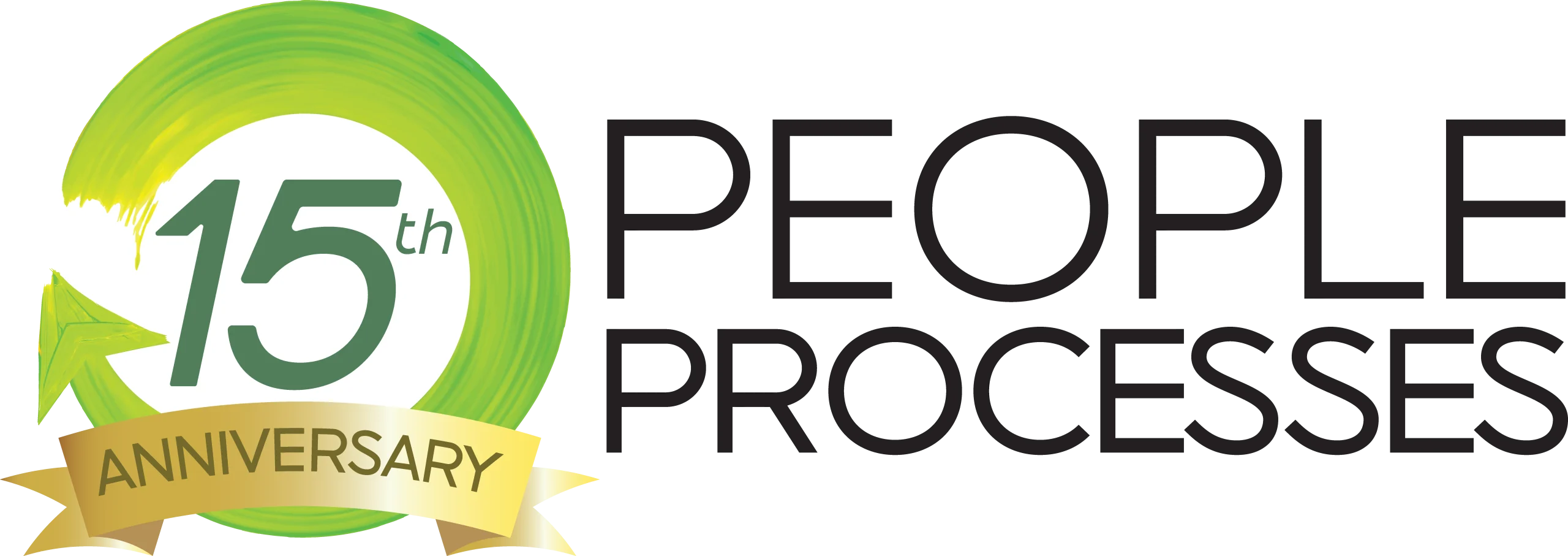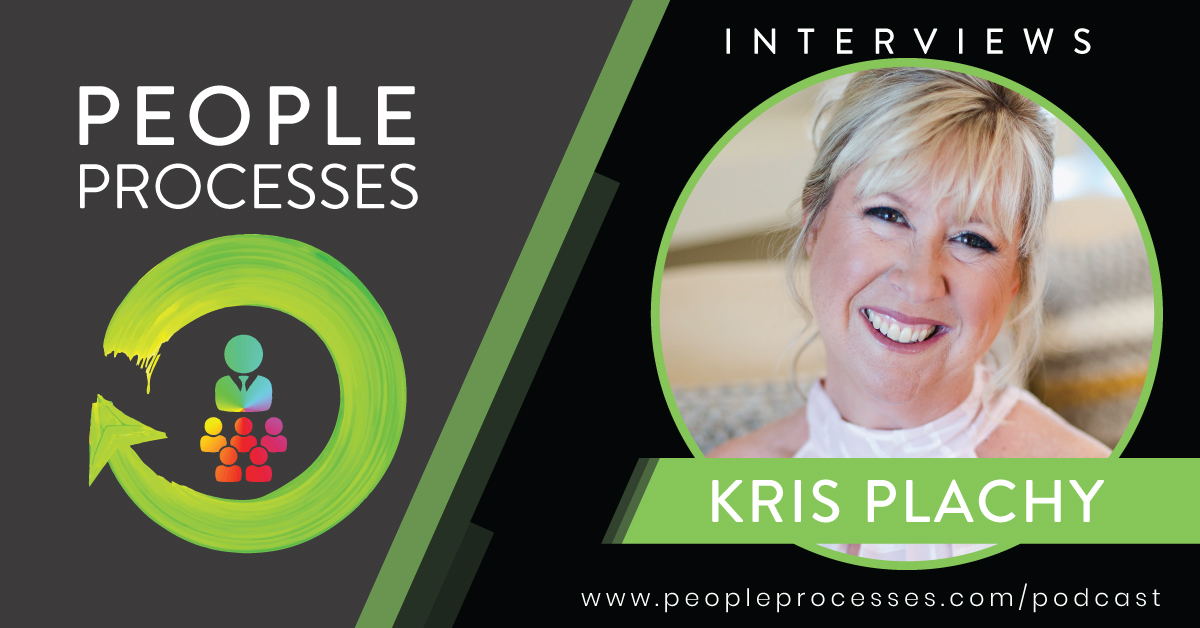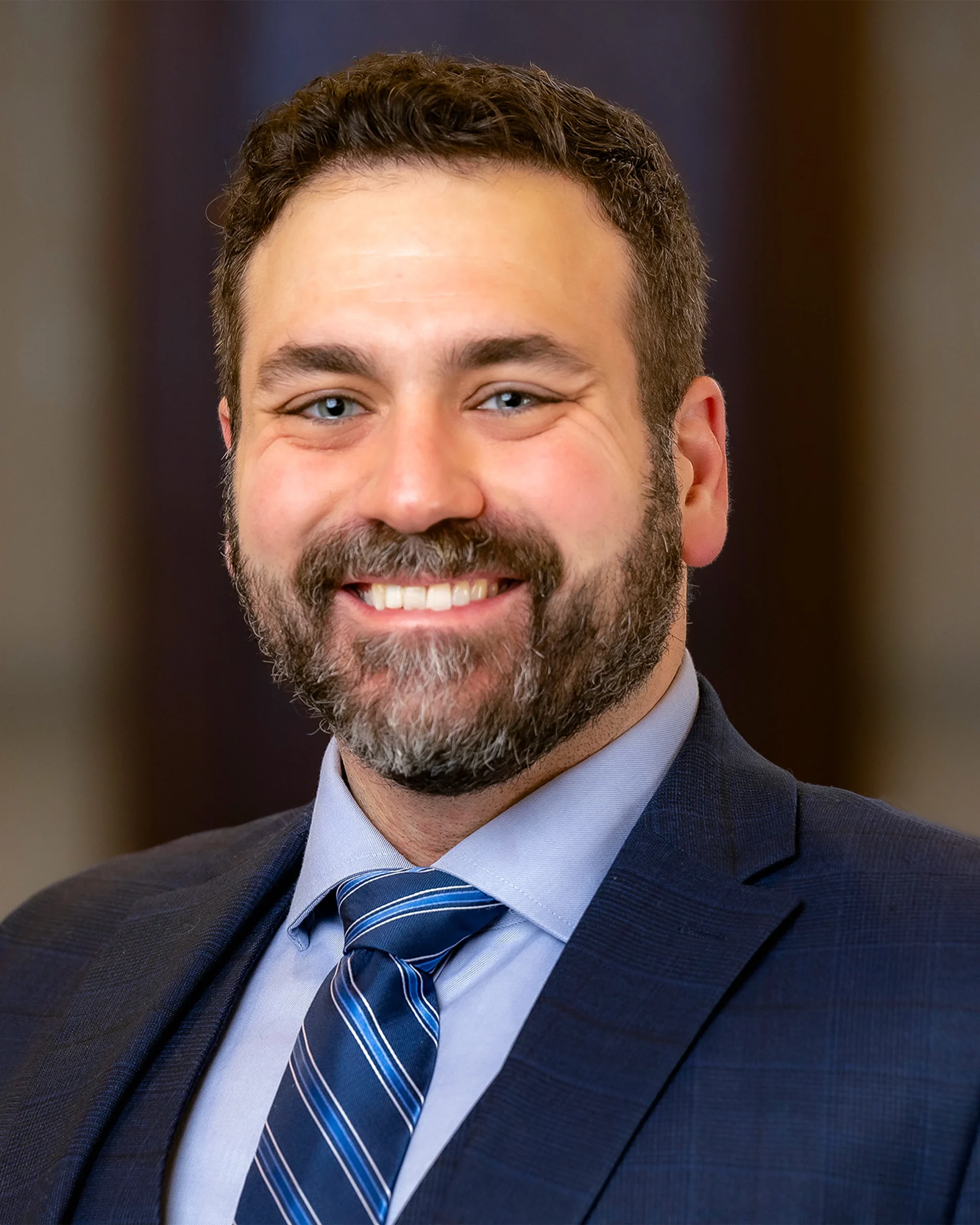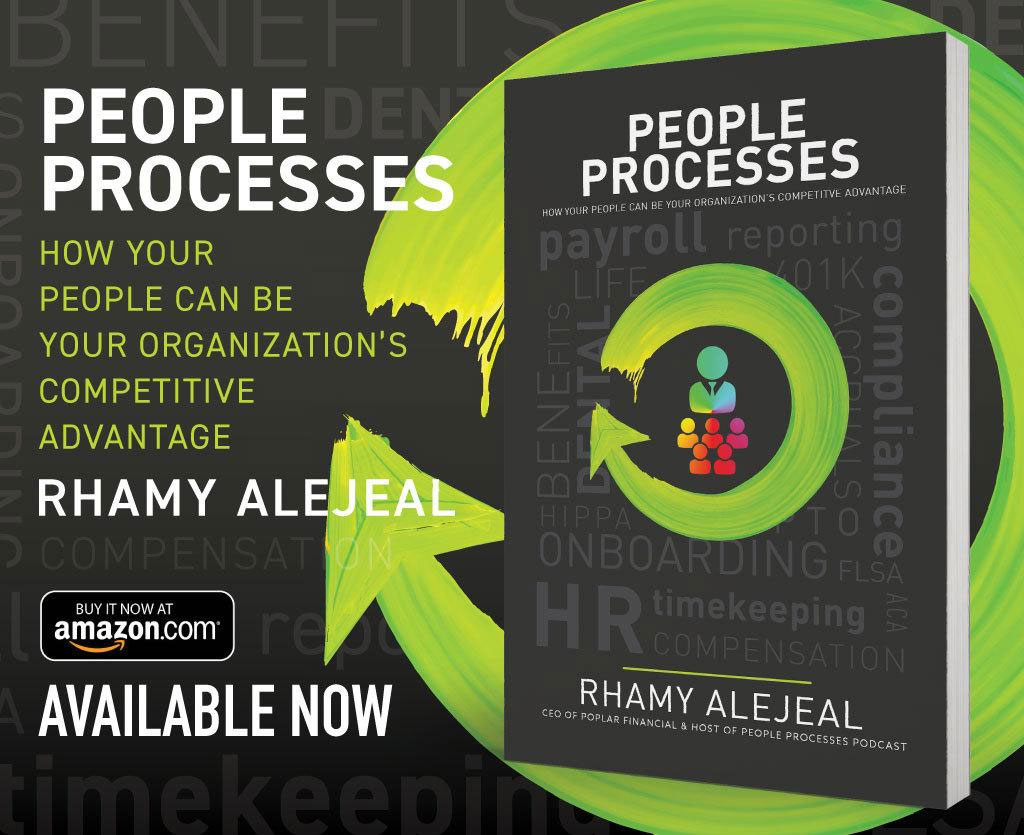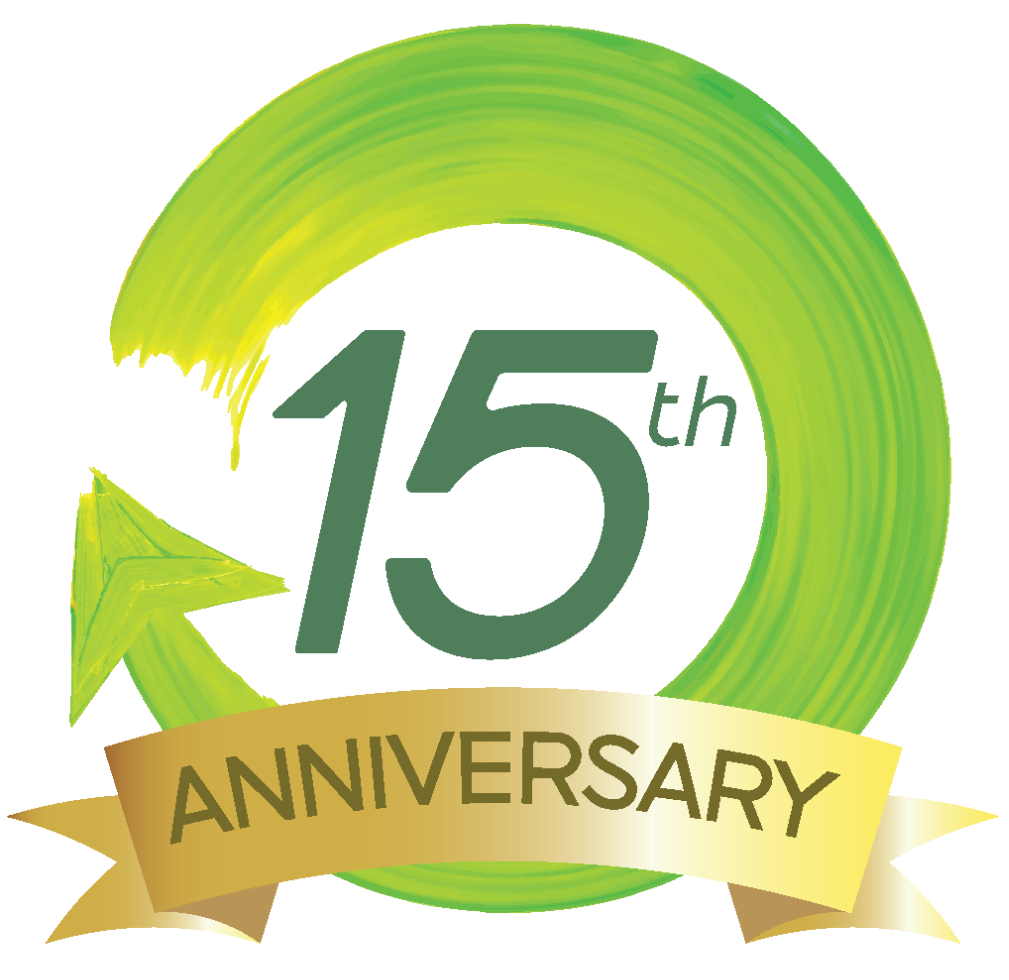Today we’re speaking with Kris Plachy. Kris has poured her life’s work into learning about understanding, and then guiding leaders through the tricky path of learning how to lead a team in a space where there’s a lot of noise and advice. Kris has designed the “How to have team leadership” through her lead your team roadmap, and we’re super excited to have her. Before we dive in though, I want to ask you to please subscribe to our podcast. You can find us on iTunes, Google podcast, Spotify, Stitcher, any podcaster of your choice. You can also subscribe at peopleprocesses.com where you will get some exclusive subscriber-only content, like our current telework checklist for going home base for your employees.
Kris, thank you so much for joining us today. Welcome to the show.
Thank you. It’s my pleasure to be here.
I’m super excited to talk with you because a lot of business owners right now are going through some difficult times. And I want to hear about how your leadership strategy works. But first, not many little girls and boys dress up as HR and leadership experts when they’re going to Halloween, right. We’re not exactly firefighters here. How on earth did you wind up after 25 years in this sort of profession in this space?
Well, yeah, it’s funny, you should say that. I think people who might have known me when I was eight might have said, “Oh, yeah, you’re gonna be a leader. A bit of applause.” Yeah, that’s funny. Let’s see. So it was a very natural process. I started my career right out of college with a recreation degree, so you might imagine that didn’t lead me to a lot of….
Wait, wait, wait, wait, wait, wait, what is a recreation degree? I don’t want to take too long on your story. But you gotta tell me what that is.
Well it was, yes, there was one class where we learned how to do face painting. I’m not gonna lie. That actually did happen. But mostly it was quite interesting. We learned all about the importance of healthy leisure, and encouraging lifestyles of activity and recreation. So a lot of people who do study recreation go into the parks and recreation field, they become out as Park Rangers. You know, community park, district leaders, that kind of thing. I actually was interested in tourism, and travel and so I had every intention of staying in that space until I did about a year and a half stint and realized I hated it.
As we have with many colleagues.
Yeah, I needed to kind of stumble my way through that. So you know, but I did complete it. And I had this funny little minor in law because I wanted to be a lawyer first and then I decided I didn’t love that either. So yeah, I think when you’re sort of riffing there about, you know, little boys and girls don’t act like whatever this is for Halloween. I never knew what I wanted to be. I never had a clear career path. And so I just got a job when I graduated as a recruiter for a private startup online school program.
Nice.
And I was good at it. I was good at sales. I was good at consulting, which I later realized was coaching and this one in the early 90’s, when I discovered a side class. So I realized there were more classes on being a coach, being a professional coach. And this was honestly like 1994, Rhamy.
A long time ago.
So I went to this class and I was immediately like, “Oh, that’s what I’m supposed to do.” So what happened then, next many years, is I follow the trajectory of leadership. So I was a frontline recruiter for a couple years. Then I got promoted to manager for about four years. Then I got into training for several years. And then I got into senior leadership and I was leading upwards of 200-250 people. And all the while was continuing my learning and studies of coaching. And for those who have kind of followed the profession, that’s sort of been the trajectory as well, we started seeing more and more interest and support and resources and learning for people who wanted to be coaches and all sorts of different types of fields. So my last job in the organization I worked for was actually creating an internal performance coaching team. And I did something very different when I created that team, unlike most traditional learning and development organizations, I hired all high performing operations leaders to be my coaches on my team. And so then we ran a development program and on site performance coaching program for about 4000 leaders in this organization that I work with for. So that was my last gig in a business and then that company I was still in higher education. That was about eight years ago. That’s when just the floor fell out of that industry and everybody got laid off. And so that’s when I started my business. And I already had such a running start, because I’ve been coaching leaders for years, on how to manage, how to make decisions, how to coach, how to get out of their own way, when they have their own thoughts about their team that are affecting their ability to manage them. And I haven’t looked back, I absolutely love what I do, and what I’m able to help other people do.
Well, that sounds like an awesome journey. And now here you are, you’re consulting with great companies. You’re teaching them about leadership, and I want to learn more about that. But, before we do that, our listeners are entrepreneurs, some of them are an HR administrator, some of them are one man shops dreaming of their first employee and some of our listeners have five or 6000 employees they’re managing.
Right.
The thing that universally they all learn from is not our good stuff. It’s when we screw up.
Sure.
So what I’d love for you to do is take us to the moment in this last eight years of you running your company, or even in your corporate life, that was your worst entrepreneurial management leadership screw up and really tell us that story and how that happened. And we’ll talk about what we learned from it later. But for now, I just want you to take us to that real bad time.
Well, I think honestly, I have a few crucible moments, is what I call them. I’m a George fan who wrote the book “True North”. If anyone’s read it, it’s an incredible book for leaders. But I have one that always is kind of that moment where I was like, “Oh, you do that?”
Yeah.
And it was honestly when I was a new manager. I had someone on my team. I was very young, I was 26. And most of the people on my team or my contemporaries, or a little younger than I, had one team member in particular who was very affected with herself. And now Rhamy, I live in California, so I think Taishan talked a lot like best and her face was really dramatic. And if she wasn’t happy, everybody knew it with her body language and her face and right like it was just so toxic and exhausting, as from a management perspective, I found her tedious to manage and we’ll call her Rhonda. That’s for anonymity sake.
And so…
I always call my guy Chad. I got in a lot of trouble at some point because I wound up with a longtime listener who reached out to say, “Hey, we really want to work with you.” And I was meeting with him and he said, “You know my name. My name is Chad by the way. In every episode you mentioned me.” And I’m like, “Oh, we’ll go with Rhonda now and we’ll hope that you don’t have a Rhonda as a client.
In the past, for me, it’s been Lucy and I actually use that name in my book that I wrote for manager and I had somebody who emailed me and she’s like, “Uhmm,”
Alright, so here’s Rhonda, there’s Rhonda traumatic valid girl Rhonda.
Hairy, dramatic, and one day after a meeting, we had Monday meetings. I had it, like she just sat in the meeting and huffed and I rolled and crossed her arms and through her pen and just, I had it and so I went into her office and closed the door. And that’s about as good as it got. Because after that, I looked at her and I said, “What is up with your attitude, Rhonda?” And I’ll never forget it. She stood up. She looked at me and cocked her head, you know how people do? And she crossed her arms, and very slowly raised her pointer finger and said, “I don’t have an attitude. You have an attitude.” And that was when I realized you don’t argue with team members. Never. Because you never win. It’s not. Then one of the tenants of my work is that performance is not an opinion. But all that was for me that in that moment was opinion and you can’t, there is no substance to this argument when it’s based on my opinion of you. Right. And so that was a powerful moment for me, where I learned I had to learn how to speak to my employees about observable behaviors and evidence and not my opinion about their behavior. Because what I’ve come to know is the majority of issues when it relates to employee performance are behaviors. It’s not usually a skill. Every now and then, it is, right? But mostly, it’s this stuff. People are late or they miss their deadlines, or they’re kind of snarky, or they gossip. So that was it for me. It was very painful. It was mortifying, I was so embarrassed. I couldn’t back out of it. Anyway, it was terrible.
I think that’s a great lesson to learn. Yeah. And HR 101 insight reporting and documentation. Right?
Yeah.
Here’s what I want to know about Kris. So you’re telling me and I love that story. And by the way, everyone who’s in this and going, I did that, we’ve all done that, right? And in years of doing this, at some point, you’ve said, “I don’t like the way you look,” right? The way you look at a person. I don’t know. But I got it. Here’s what I know. You’ve been doing this 25 years. You’re talking about the 90’s?
Yeah.
Your worst moment was yelling at a single employee. You are either a god-thing or you have not told us the worst moment for you. What was the hardest part?
I mean, you can all go through the list. I had to lay off 25 employees and rehire them. But one could only rehire I think it was like 18. And I was doing it with a colleague. So we laid them all off the day before and then told them if they wanted to reapply, we would meet them all the next day, and they got set up for half hour interviews. And I woke up that morning and I was sick to my stomach. But I thought, “No, I’m fine.” And I went, and then this woman came in and pleaded to keep her job because her husband was on dialysis, and she didn’t have a car and had to take the bus. And we knew we weren’t going to hire her. And I proceeded to get wretchedly ill and couldn’t do any of the rest of the interviews. I completely. My whole body shut down and I couldn’t show up for the job.
And so my colleague had to do it. She had to make all the decisions, which was like, mortifying to me. But I couldn’t be there. I was literally retching. I couldn’t sit there and listen to people beg for their job. And the thing is for me that it’s been a struggle I’ve had always that’s why I’m so inclined. I feel like to do this work is incredibly sensitive, which I think is a tough cocktail when you’re in a leadership role. And I’ve had to work on learning how to remain me and not be too passive or give in too easily, but also not shut it all off, right,? Because it is a superpower when I use it well, but it’s been hard. It was very hard on me. When I first started, the first 10 years of my job as I kept getting more and more responsibility. I would really have to work hard to muster through very difficult decisions which I’m sure is what led me to focusing on writing books about how to deal with difficult people and how to deal with difficult circumstances, like I ended up specializing in it, but it wasn’t because I was great at it. At first it was because I was terrible at it. And I know the pain and shame, right? Of knowing you’ve got to step up and you can’t, you can’t do it.
I am, early on in our company, we’ve been in business coming up on 11 years and I think about four years on, at some point, we had a sales staff of almost 15 people and we went down to three that I remember that week and how that went. It’s one of the hardest parts of leadership.
Yeah.
That’s a real story.
Did you like that one? My first year that I made a lot of money as an entrepreneur and I didn’t pay my taxes.
Well that’s for a finance podcast. Those are bad days too.
Mistakes. Yeah. But for sure for me it’s been on that human to human level when it’s just the most palpable for me, but of course, the biggest learning. So now when clients call me and they tell me, “I have to lay off 27 people today,” which has been happening this week, we’re in the aspirants here in the States, right. “Man, I get it. I’m all in with you. But it doesn’t change the decision. It has to be made.”
So in your leadership training, I mean, obviously, you focus on a lot. And we want to talk about some of the processes that you’ve had, that maybe our listeners on a very simple level could hear the concept of and maybe adopt for themselves a little bit. But before we do, maybe if someone right now, this podcast is going to come out in April. There is a coronavirus thing, we’ve had of our clients almost 800 layoffs that we’ve had to manage on the process level. If they’re sitting there and as a business owner and going, we don’t have the money coming in or I can’t afford to pay this mandated sick leave or whatever it is that’s going on. What would your advice be to them on how to get through that or how to evaluate the decision? What could you in five or six minutes maybe give them a little ideas on?
Well, I actually have been, all week, I did two open coaching calls last weekend and had several hundred people come and then this week I’ve opened up tons of coaching hours to all of my current clients. And so I’ve been talking with mostly women all week about these very things. And so I’m actually putting together something for my clients about this very question and to me, I’ve come up, there’s really four areas you’ve got to focus on.
The first one, is your own mind management. You as leaders going through this moment in time, we have all our own concerns personally about ourselves and our families and our communities. Our kids are at home, like there’s so much going on. So having a place to work through your own thinking is critical. Because your brain is where all of this is going to come from. And we need your mind clean, just like you’re washing your hands. You need to wash your brain. We got to flush out all of the things that are going on in it.
The second thing is, everyone needs at least a 90-day plan. Now, the problem is when we build a 90-day plan, it makes us look at the stuff we don’t want to look at and for a lot of people right now, that’s scary to look at 90-days from now. And I asked them to do a worst case scenario, you got to look at it. And then I’m here as your coach. I’m going to help you think through it, you’re going to work on your brain because your brains are gonna have a tantrum. And it’s not going to want to think about 90-days of no revenue. But we have to, we have to get really, really honest about what the circumstances are. And because what I’m watching a lot of people doing is, they’re anticipating what could happen, but they’re not planning for it. And then what happens is, if you don’t have a plan, you take action in reaction mode, instead of in something you’ve already thought through, worked through, you already had the brain tantrum. Now you can take action you can execute. So a 90-day plan has to happen that looks at finances, looks at team and it looks at your life. You, especially for Small business owners, right? I realized the larger businesses have a lot of other factors. But if this is you and you know, 15 employees, you got to think about it all.
Then there’s the team, what are we going to do with them? How do we want this to play out? I spend a lot of time with when in normal circumstances, we look at values and we look at expectations. That’s where the way that we pay people comes from, how we decide to pay people is born out of our value system. So all my clients need to gut check. That part of who they are, what is the right decision for you and your company, not based on what everybody else is doing or the government is telling you to do. What works for you all. And that’s the plan that has to get into place. And I’ve been so impressed with how some of my clients have been so creative with how to make this work right now.
And then lastly, I’m just calling it focus. And what that means to me is, you have to watch where you spend your time. A lot of people at least initially have been eating news, social media and it’s not good. It’s not healthy. Everybody manages to find out what they need to find out without consuming copious amounts of terrifying information all day.
Right.
Because what we want your brain doing is create. Like, your brain can’t create if it’s scared. And your brain can’t create if it doesn’t have a plan and I’ve watched this all week. It’s the plan in place. They start brainstorming new ideas. And what I know, you and I both know, Rhamy, is amazing stuff that will come out of this.
Exactly.
I feel like we never would have thought of. So there will be that. That will happen but we have to watch what we focus on and we have to do what we can to get into creating versus focusing on the problems.
I interviewed John Lee Dumas, he runs a podcast called fire one of those hooked me into podcasting. I started listening years ago and he has focus, is acronym for it is follow one course until success.
Yeah.
Always, I think about that. It’s like I’m not one of those people who like to post notes and like cute scripts on the wall. But if I ever did, that would be the one follow one course until success. But now to recap that..
So helpful right now, but it’s going on like, if you could just get that one thing that you give your brain to work on and figure out and solve and play with. It’s so good for you.
It is. So when you kind of went through your steps you said, “Hey, first wash your brain.”
Yeah.
So that means, in that, you’re talking about getting away from everything, sit down.
Yeah. Right. Which is to really understand that there, we have circumstances that are happening all day, but our brain is defining those, right and how your mind to find them will trigger how you feel. And so a lot of us just have very unsupervised thinking and we believe that what we think is true, but it’s not. It’s just our thoughts. Now, if you’re consuming copious amounts of news, you’re believing what those people’s thoughts are. Right? We have to get yours. Yeah.
I got into this business in 2009. December 2009, is when the Affordable Care Act was passed. And in the next two to three years, most of those provisions went into place. And for many companies in the insurance world, that was a disruption on us, believe it or not, it cut up revenue in the realm of up to 60%. And I mean, companies in our world folded left, right and center and I’ve been in business six months, right. And at first when that happened, I was pretty upset. And after the first couple months into it, we were constantly trying to learn more and more and more and try to figure something out and like, we’re only a year into this, as a time to, and I don’t remember what triggered it, but at some point, it transformed from a terrible thing to an opportunity. Interesting. And I truly believe even as awful as this virus and its effect on the economy and people’s health of course and families. The businesses that figure out how to turn who the business owners, the leaders who go, alright, this is awful. What is the opportunity here? How do I change this? How do I reposition ourselves to make this an opportunity? Are they going to be the ones that come out of this just on fire with success? Because tons of companies, they’re going to do exactly as you described. Yeah, they’re going to panic, they’re going to consume a pile of news and they’re gonna give up, they’re gonna keep doing what they did three months ago, and think it’s going to work three months from now. Yeah. And this is an opportunity, and it can be an opportunity for every business. I don’t care if you’re a restaurant. If you’re a salon. If you’re a consulting service, a CPA firm, a law firm, there is an opportunity here for every one of them. I don’t know what it is for all of you. But there is one.
Well, because if there’s always somebody in your interest who’s spearheading it and I’ll tell you one of the ones that’s been really fun to watch because I just happen to attract a lot of healthcare professionals. I have doctors and dentists and my husband’s a physical therapist. So I actually have several physical therapy clinic owners. telemedicine, it’s all gonna be totally different. Like, this is changing that landscape. Because first of all, everybody needs to still make money. And all of these, my husband is a physical therapist, they’re figuring out how to care for people and not touch them. Right? And what is not there, it’s not going to come back.
It’s not gonna come back. Right. And that’s the thing with all of these industries. Well, same thing. I don’t want to go sit in your freaking waiting room for 45 minutes.
Oh, I know I’m right.
It’s like, in every industry, I was talking with my staff about it. We have invested heavily over the years and telework and secure call centers separately and just all kinds of different stuff. And there was always a taboo to a degree of when you’re meeting with someone who’s discussing direct finances. Like, why are you sitting in your home and oh my god, hey, there’s a dog over there. Like, that taboo is dying. And in three months of this, it’s going to be like, well, I have no problem meeting my attorney. While he’s sitting on his back deck. It’s a heck of a lot more convenient. And we can both sit there and drink the preferred drink. I don’t have to drink your crap coffee. I can drink mine. Right. So there is an opportunity here.
Oh, yeah. I’m so glad you said that. Because that really is so important. But if your brain, the sky is falling, everything’s awful and here’s the thing, right now, it might make you decisions you never wanted to have, to make conversations you never wanted to have to have. But if you hold on to, it’s awful you can’t create and we need you. We need leaders right now, more than any other time, at least in my existence, right? Like, we need people to step up and be willing to stand out and try something. And get the double edge, right? Like, what the heck is she doing? And, Whoa, the heck is she doing? Right? Like that’s what has to happen right now. And it’s so fascinating to watch who steps up and who’s willing.
You were so optimistic. You and I both are obviously HR people. It’s like, it’s all gonna be fine. Everything’s great. But…
Eventually it will.
It will be and it will be. But let’s let’s dial it back. And let’s give some practical advice here. You are an expert at making these hard decisions. How does someone who is just right now evaluating gotta lay off 100 people or five people or their first employee, how do they fire them? And live, right? How do you fire that person?
Well, it’s an interesting way to have time to do it. It’s almost like at least this has been what my clients are telling me because I would say half of my clients have already had to layoff people but everybody understands. So…
It’s a lot harder in a way it’s harder to fire someone because they consistently under-perform than it is to be like, “Look, we don’t have any clients like what do you want from me?”
Wow.
That’s an interesting point.
And they get it. I’ve had people tell their boss, “I’ll just work for you anyway. You don’t have to pay me but I want to help you.” I do believe most people have the sense but this has an end to it versus the recession in 2008.
Right.
What the hell was gonna happen? Right. But to answer your question,
Hold on HR insert, people can’t work for you for free. Hashtag compliance. Throw it out there. But I understand what you’re saying. Medical staff.
Do something different. I don’t follow mine on that one. To me, I guess is what I’m trying to say.
Exactly.
Yeah, that could change. People could start to get more low on Maslow’s Hierarchy here and start to freak out. So what I have advised people and what I’m watching them do is they’re finding out on behalf of their employees, what the right solution is for the employee. And so in the case of several of my clients, the right answer was actually to lay them off, because then they qualify for a solution. So they set up the conversations that way, here’s how this is going to go, right. “I’m gonna fire you, I’m processing your employee history records, everything’s ready. You can file. And this is eventually once everything’s crankin, I will want to invite you back.” But the employers are doing some of that research on behalf of the employee so that the conversation has direction versus I can’t pay you anymore. You have to leave. Kind of.
Right.
Now, everybody handles that a little differently. I appreciate there’s laws in different states. Again, I’ll defer to your expertise. But when we tell people that we have to lay them off right now, I think it’s incredibly important that we honor who they are as a human, we tell them how important they are. We tell them this has nothing to do with performance. If it doesn’t. I have actually also advised some employees and some clients. If you have people who are not performing this is the opportunity to make some decisions too. So, in a time when everything is in flux, you have to always come back to what is right for the business. And that is a gut check when we love our people, but we can loop back to them. I’m very confident that’s all going to work out for people. Right now, what’s the right thing for the business? And then what are the services provided in your world, wherever you are, that help your employees as best as possible? And it does s
